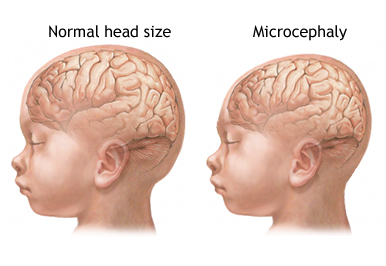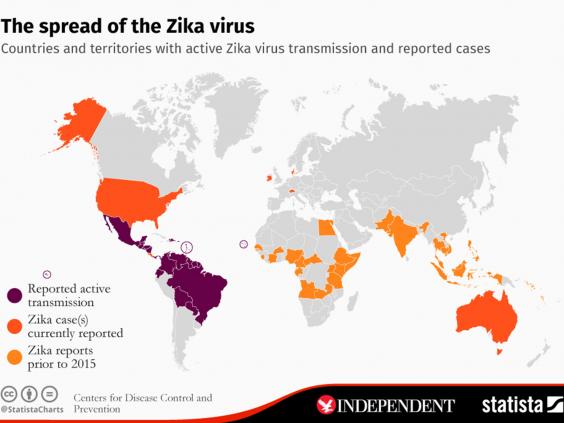What is Zika? Zika is a virus passed by a bite of an infected yellow fever mosquito (1). Adults infected with Zika virus can develop several symptoms. For instance, headache, rash, fever, red eyes and muscle pain. Indeed, not only adults can be infected by the Zika virus. Pregnant women infected with Zika virus can also pass it down to their fetus.
Joseph Gleeson,a neuroscientist from Rockefeller Univeristy in New York City, suggested infants infected with Zika virus are very likely to be born with abnormally small heads called microcephaly (4). A group of researchers conducted an experiment to understand how Zika virus caused impairment in cerebral cortical development, an area of the brain associated with the function of thoughts and actions. First, the researchers infected both neural progenitor cells (NPCs) and mature cortical neurons with Zika virus (2). Neural progenitor cells, like stem cells, that are capable of differentiating into neural cells (3). While, cortical neurons are nerve cells found in the largest region of the brain that is responsible for the complex activities, such as thoughts, perceptions, voluntary movements and more (3). The experimental results showed there were more cell deaths in infected NPCs than mature cortical neurons. Thus, the scientists claimed the results provide a plausible pathway showing how fetus’s brain is infected by Zika virus.

Figure 1: The comparison of infant’s normal head size to an infant infected with Zika virus. Author: Tani Source: Picture uploaded by original photographer

Figure 2: The map showing the spread of Zika virus. Author: Lizzie Dearden; Source: Picture uploaded by original photographer
Zika virus has been reported to be an alarming issue in Brazil, Mexico, some areas in the United States and more (1). At this stage, there is no cure or vaccine to treat Zika virus. However, wearing long-sleeved shirts and long pants regularly can minimize the chance of getting bitten by a Zika-infected mosquito. In addition, carry insect repellent all the time is another way to avoid getting infected with Zika virus. It is strongly encouraged to consult the doctor for advice if an expectant mother is infected with Zika virus. Lastly, try to avoid traveling to areas reported with active Zika virus transmission.

References:
1. U.S Department of Health and Human Services. Centers for Disease Control and Prevention: Zika Virus. https://www.cdc.gov/zika/about/overview.html (accessed on Oct 2nd, 2016).
2.Miner, J.J & Diamond, M.S. Cell Stem Cell: Understanding How Zika Virus Enters and Infects Neural Target Cells. Science Direct. 2016, 18, 559-560.
3. Nature. Neural progenitors. http://www.nature.com/subjects/neural-progenitors (accessed on Oct 2nd, 2016).
4. Society for Science and the Public. Brain Health: Zika can damage the brains of even adults. https://www.sciencenewsforstudents.org/article/zika-can-damage-brains-even-adults (accessed on Oct 2nd, 2016).
Photo source:
1. Copyright information: http://pregnancywellnesstips.com/pregnancy-wellness-symptoms-prevention-treatment-of-zika-virus-during-pregnancy/
2. Copyright information: http://www.independent.co.uk/life-style/health-and-families/health-news/zika-virus-uk-america-europe-symptoms-cure-pregnant-women-microcephaly-a6851126.html
